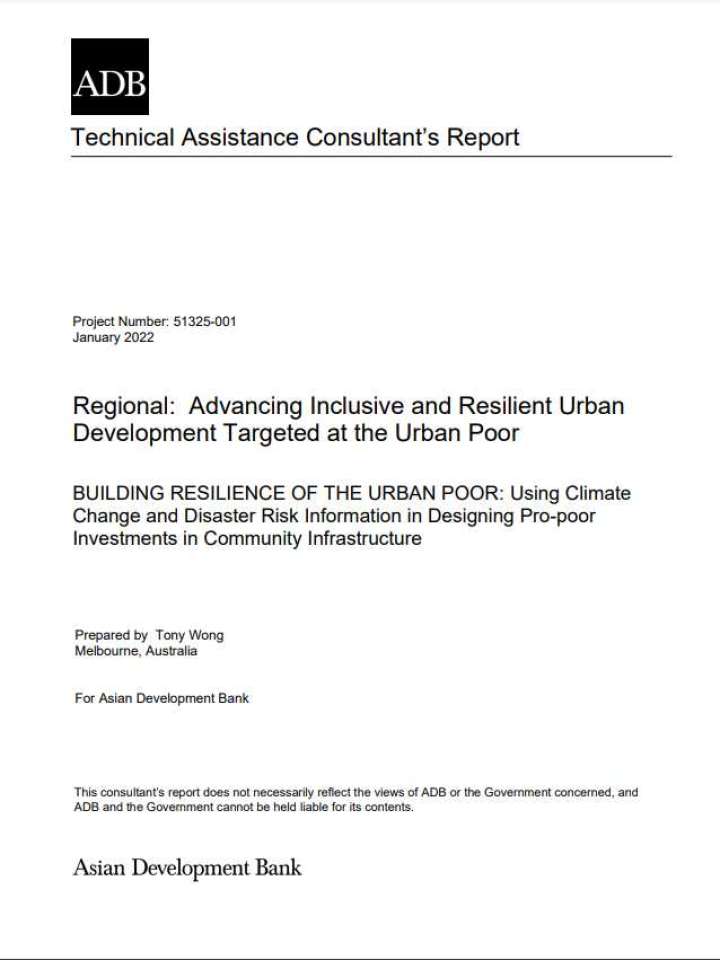Advancing inclusive and resilient urban development targeted at the urban poor
This discussion paper is specifically focused on the planning and design of connective and protective community infrastructure and the use of climate change and disaster risk information on climate-sensitive hazards in ensuring their resilience. The Asia-Pacific Region is home to 60% of the world’s population living in informal settlements and many poor people residing in formal settlements. Urban poor often live where they can afford to, and so are disproportionally negatively impacted by hazards.
An accompanying note discusses the urbanization context in Bangladesh, and outlines how the Graduation approach, building on a foundation of social assistance, contributes to reducing the negative impacts of urban climate change through programs that strengthen the resilience of households both through increasing their financial security and reducing climate impacts.
Explore further
